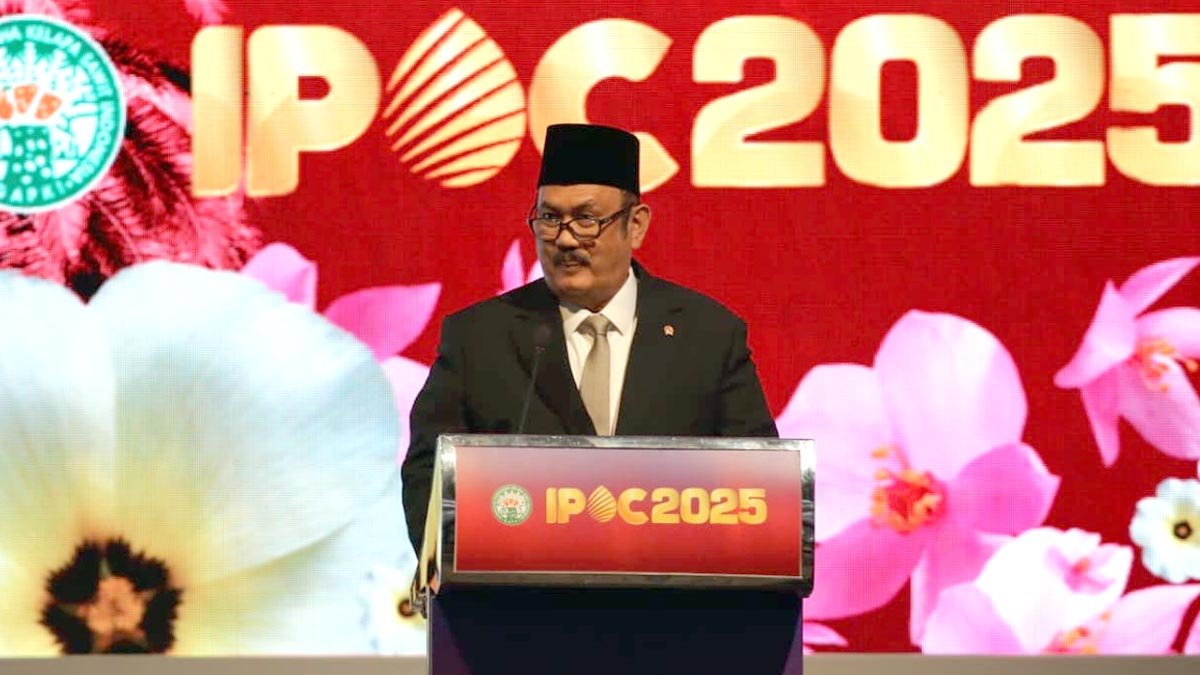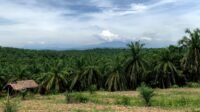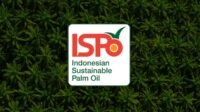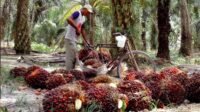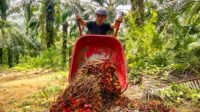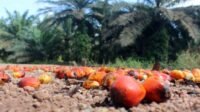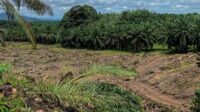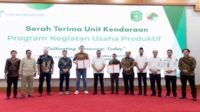PALMOILMAGAZINE, BALI — Indonesia reaffirmed its leadership in sustainable palm oil development as the Minister of National Development Planning / Head of Bappenas,
Prof. Dr. Ir. Rachmat Pambudy, M.S., delivered his keynote address at the 21st Indonesian Palm Oil Conference (IPOC) and 2026 Price Outlook held in Nusa Dua, Bali, November 13–14, 2025.
Carrying the theme “Navigating Complexity, Driving Growth: Governance, Biofuel Policy, and Global Trade,” the event gathered representatives from government institutions, industry associations, academia, farmers, civil society, and international partners from 26 countries to discuss the future of global palm oil governance.
In his speech, Minister Rachmat emphasized that palm oil remains central not only to Indonesia’s economy but also to global sustainability and human well-being. “Palm oil is more than a commodity — it is a bridge of friendship, peace, and humanity,” he said. “Through palm oil, we connect nations and promote not competition, but cooperation and shared values.”
Also Read:
Balancing Growth and Sustainability
Rachmat underscored that as the world faces climate change, rising population, and increasing demand for food and energy, palm oil holds a vital role in addressing these challenges efficiently and sustainably. “Meeting global needs requires not only more production, but smarter management — balancing productivity with environmental stewardship,” he noted.
He reiterated Indonesia’s commitment to managing its palm oil sector based on the Sustainable Development Goals (SDGs), ensuring that growth does not come at the cost of nature or future generations. “Justice in the global palm oil trade must also mean justice for smallholders and plantation workers — the people who sustain the world’s palm oil supply,” he said.
Invoking the Balinese philosophy of Tri Hita Karana, Rachmat urged the industry to uphold harmony between God, humanity, and nature as a guiding principle for responsible development.
Palm Oil: Driver of Green Growth and National Prosperity
According to Rachmat, palm oil is a key pillar of Indonesia’s Golden Indonesia 2045 Vision, which aspires to achieve high-income status, eradicate poverty, strengthen global leadership, and reach net-zero emissions by 2060 or sooner.
“Palm oil supports millions of rural jobs, drives downstream industries like biofuel and oleochemicals, and contributes to national food and energy security,” he said. “It is also one of Indonesia’s strongest tools for achieving the SDGs — by creating green jobs, reducing poverty, and advancing renewable energy.”
He highlighted Indonesia’s recent victory in the World Trade Organization (WTO) dispute over palm oil discrimination as proof that fairness and scientific evidence can prevail in international trade. “This win is not only a legal success but also a moral one,” he affirmed, underscoring that Indonesia’s biofuel policies fully align with international trade principles.
Empowering Smallholders and Strengthening ISPO
Rachmat reaffirmed Bappenas’ support for transforming the palm oil sector through inclusive and technology-driven policies. The government continues to reform regulations, accelerate replanting programs, and expand digital traceability systems to strengthen the credibility of the Indonesian Sustainable Palm Oil (ISPO) certification.
He called on the industry to empower smallholders by improving access to financing, technology, and market opportunities. “Empowering smallholders is at the heart of our national strategy — because sustainable palm oil must be inclusive, fair, and beneficial to all,” he said.
From Biofuel to Green Innovation
Looking ahead, Rachmat emphasized that the government will continue encouraging the development of downstream palm oil industries, including sustainable aviation fuels (SAF) and biodegradable materials. These innovations, he said, will create higher value-added products, green employment, and long-term economic resilience.
“Palm oil is not merely a product — it is a partnership of humanity,” he concluded. “It shows how countries of the Global South can grow responsibly, lead sustainably, and share prosperity fairly.”
Harmony and Shared Prosperity
Closing his address, Rachmat reminded participants that collaboration among governments, industries, and communities is crucial to turning palm oil from a source of controversy into a symbol of cooperation.
“Together, we can make palm oil a force for good — a bridge between people, nature, and prosperity,” he said. “Let us work together for mutual benefit, ensuring that no one is left behind.”
Don’t miss out! Stay up to date with the latest IPOC 2025 news at Palmoilmagazine.com. (P3)

